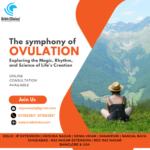Mastering Research Methodology: A Comprehensive Guide for PhD Students in India

Written by
Dr. Deepak Sharma
BHMS, MD, Ph.D. (Scholar)
Homeopathic Physician and Educator
Founder – Orbit Clinics (World Class Homeopathic Clinics Worldwide)
Introduction:
In today’s fast-paced academic world, a PhD is often regarded as the pinnacle of academic achievement, embodying years of in-depth study and rigorous research. For doctoral students in India, this journey of intellectual pursuit is laden with multifaceted challenges, but also with extraordinary opportunities. One of the key ingredients in this recipe for success is the effective adoption of research methodology, an essential tool for any serious researcher. This article explores the significance of research methodology and its implementation for a PhD student in India.
What is Research Methodology?:
Research methodology, in simple terms, refers to the systematic and theoretical analysis of the methods applied to a field of study. It encompasses the conceptual principles underpinning research and the methods used in the process of data collection, interpretation, and analysis.
Importance of Research Methodology:
A research methodology serves as a roadmap, guiding researchers in their journey from the formulation of research questions to the analysis of results. A well-defined methodology enhances the reliability and validity of the research, ensures the reproducibility of the study, and fosters credibility in the eyes of the academic community.
Types of Research Methodology:
There are several types of research methodologies available, and the choice depends primarily on the nature of the research topic, the field of study, and the researcher’s personal preferences. The two main types are quantitative and qualitative methodologies.
- Quantitative Research Methodology: This approach focuses on quantifying the problem by generating numerical data or data that can be converted into numbers. It involves surveys, experiments, and statistical analysis of numerical data. This method is suitable for research projects that aim to determine the relationship between variables and generalizability of results.
- Qualitative Research Methodology: This approach is more subjective, often used to understand concepts, thoughts, or experiences. Data collection methods include interviews, focus groups, observations, and document analysis. This method is suitable for exploratory research and understanding complex phenomena in their natural settings.
- Mixed-method research: This approach combines both qualitative and quantitative methods in a single study, allowing for a more comprehensive understanding of the research problem. It enables researchers to corroborate their findings and presents a holistic view of the subject matter.
Steps in Research Methodology for a PhD Student in India:
The following steps provide a basic structure to guide the research process:
- Define the Research Problem: The journey begins with identifying a unique research problem that adds value to the existing body of knowledge in your field. It is essential that the problem is not only relevant but also feasible for research.
- Conduct a Literature Review: This step involves a comprehensive survey of existing literature related to your research problem. It helps to understand the existing theories and models, gaps in the current research, and avenues for further exploration.
- Formulate a Hypothesis or Research Question: Based on the identified problem and literature review, develop a hypothesis or research question that the study aims to answer.
- Choose the Research Design: Decide on the type of research (exploratory, descriptive, explanatory), the approach (quantitative, qualitative, mixed methods), and specific techniques to be used for data collection and analysis.
- Data Collection and Analysis: Conduct data collection using the chosen methods. Subsequently, analyse the data using appropriate statistical or analytical tools.
- Present the Findings: Write a research report or thesis presenting the research problem, methodology, data analysis, findings, and conclusions.
- Ensure Ethical Compliance: Throughout the research process, it is crucial to adhere to ethical standards, ensuring privacy, confidentiality, and informed consent of participants.
Research Ethics:
One of the most critical aspects of the UGC’s research methodology is the emphasis on research ethics. Researchers are expected to ensure the ethical treatment of participants, maintain confidentiality and anonymity, and avoid any kind of deception.
It also highlights the importance of intellectual honesty, insisting on proper citation and referencing to prevent plagiarism and uphold the academic integrity of the research.
Statistical Analysis:
The UGC guidance on research methodology also underscores the importance of appropriate statistical analysis. This includes choosing suitable statistical tests, interpreting results correctly, and drawing valid conclusions. It encourages the use of advanced statistical software to enhance the accuracy and efficiency of analysis.
Challenges and Strategies:
While the path to a successful PhD may seem arduous, adopting certain strategies can ease the journey. Dealing with challenges such as lack of resources, difficulty in accessing data, time constraints, and issues related to plagiarism requires careful planning, perseverance, and ethical diligence. It is also beneficial to utilize digital tools and software for data collection, analysis, and project management. Networking with peers, attending workshops and conferences, and seeking guidance from mentors and experts in the field can prove invaluable.
Conclusion:
The journey to earning a PhD is indeed a marathon and not a sprint. It is an intellectual voyage that demands dedication, precision, and an extensive understanding of research methodology. For PhD students in India, mastering the principles and practice of research methodology is a cardinal step toward producing work that can stand up to the scrutiny of the global academic community.
Research methodology serves not just as a navigational tool, but also as a cornerstone, lending credibility and value to the research process. As this article has outlined, whether you choose quantitative, qualitative, or mixed-methods research, the methodology guides every step of your scholarly journey – from defining the research problem, collecting and analyzing data, to presenting your findings.
However, the task is not without its challenges. Resource constraints, data accessibility, time management, and ethical dilemmas are all hurdles to be overcome. But armed with a firm grasp of research methodology and the strategies outlined here, these obstacles become surmountable.
The integrity of the research process also hinges heavily on adherence to research ethics, which ensures the protection of participants, respect for intellectual property, and the overall credibility of your findings. Furthermore, the aptitude for statistical analysis not only supports the interpretation of your data but also strengthens the validity of your conclusions.
Remember, the pursuit of a PhD is more than just an academic endeavor; it is a commitment to contributing to the existing body of knowledge in your field. And the mastery of research methodology is a powerful tool in this endeavor, underpinning your efforts to create impactful, robust, and meaningful scholarly contributions.
The wisdom you glean from this journey will undoubtedly extend beyond the confines of your specific research topic, equipping you with a broader set of skills. These include problem-solving, critical thinking, project management, and ethical diligence – attributes that are invaluable in any career trajectory.
To all the PhD students embarking on this remarkable journey, remember that the path may be challenging, but the rewards, both personal and professional, are boundless. It is our hope that this comprehensive guide will serve as a useful resource in your scholarly adventure, illuminating the path as you contribute to the expansive universe of knowledge.



